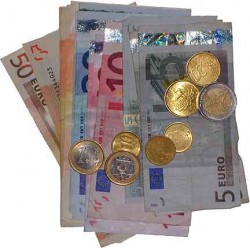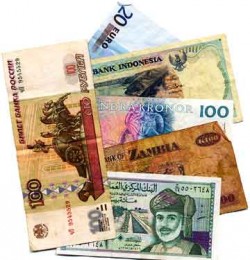You can save up to 20% when you change money abroad if you shop around. Maybe more.
I found myself in Rome recently, with a wad of Swedish money I wanted to get rid of. Instead of buying American dollars with the Swedish crowns and buying the euros I needed with U.S. cash, I wanted to change the crowns to euros.
For this story, the country of origin of the money doesn’t matter much. It’s just a numbers game.
I decided to take my own advice: “Before you buy foreign currency, compare the posted prices at several booths or banks. Find out whether they charge fees or commissions [or both]. Compare, and ask for better deals.”
Let’s say the Swedish cash I had to change was worth about US $800. I popped into the first change booth I found, “Forexchange” on Via Solferno.
“How many euros will you give me for 6000 Swedish kronas?” I said.
“429,” the woman said, after some poking on her calculator.
“Is that your best offer?”
“For you, 452.”
See, I could have made 23 euros without even a pretty-please. It was a terrible deal, though. Forexchange takes a fee of €4.90 and a whopping commission of 19.7%. Of course. They’re in the business of making money by buying and selling currency.
I went to another foreign exchange booth where I was offered 495 euros. Up 66 euros from the first quote. Still a bad deal.
American Express will wave its fee for Platinum Card holders, but even with this discount, I’d only get 522 euros for my 6000 SEK. Still, that’s €93 more than the first quote.
Finally, I went to a branch of BNL bank where, after locking all my metal objects into a lobby locker, I stepped into a glass capsule that shut behind me, holding me briefly captive before opening inward and allowing me to enter the bank. The offer there was €535. 106 euros more than if I’d just made a quick change at the first available place. That’s a difference of about $150 on my $800 exchange.
Even with the recent rise in credit card companies’ foreign transaction fees, I believe in using plastic whenever possible for foreign purchases. The fees are now 2 or 3%, but that’s all. For me, credit cards are convenient and economical, and I like the other benefits of using them. But I still need to buy small amounts of local currency—enough for coffee, taxis, souvenirs, and tipping. My experience in Rome last month reminded me that it pays to shop around.


